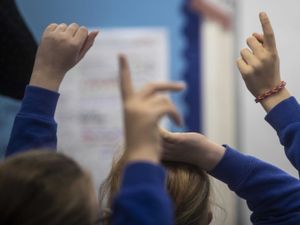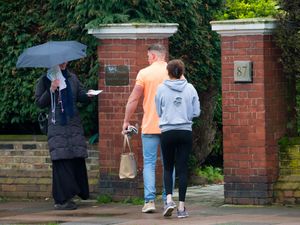More than two in three leaders do not support collective worship law in schools
The Government must recognise the ‘divisive and deeply unpopular’ law in schools and repeal it, the National Secular Society has said.

More than two in three senior leaders in state schools do not support a law which requires daily acts of collective worship in school, a survey suggests.
The Government must recognise the “divisive and deeply unpopular nature” of the collective worship law in schools and repeal it, the National Secular Society (NSS) has said.
Schools in England are legally required to hold daily acts of collective worship – and in schools without a religious character, it should be “wholly or mainly of a broadly Christian character”.
The issue of religious practice in schools is becoming “increasingly fraught” and imposing worship on pupils “adds to this tension”, secular campaigners have told the Education Secretary.
The warning comes after Michaela Community School in Brent, north London, faced legal action from a Muslim pupil against the school’s ban on prayer rituals.
Last month, the high-profile school defeated the legal challenge from the student who claimed the school’s policy was discriminatory and unlawfully breached her right to religious freedom.
A poll of 1,934 senior leaders and headteachers in England, shared exclusively with the PA news agency, found 70% disagree that all schools should be legally required to hold daily acts of broadly Christian collective worship.
The survey, which was carried out for the NSS by the Teacher Tapp app in April, suggests just 12% of senior leaders support the collective worship law in schools.
In a letter to Education Secretary Gillian Keegan earlier this year, the NSS said teachers were “deciding en masse that collective worship has no place in inclusive 21st century schools”.

The letter, from NSS chief executive Stephen Evans, said: “The issue of religious practice in schools is becoming increasingly fraught, as the recent events at Michaela Community School have demonstrated.
“A law requiring acts of broadly Christian worship in schools unnecessarily adds to this tension.”
Under the law, parents can request for their children aged under 16 to be withdrawn “wholly or partly” from acts of collective worship.
Schools can also apply to their local Standing Advisory Council on Religious Education for an exemption from the legal requirement for Christian collective worship – which is known as a “determination” – if they consider this would better meet the needs of their pupils and families.
On the survey results, Mr Evans said: “Our population is more irreligious and religiously diverse than ever before. It is therefore unsurprising many teachers find imposing worship on children objectionable and unconducive to a pluralistic and cohesive learning environment.
“It’s high time legislators recognised the dead letter nature of this obsolete law and repealed it.”
In March, education minister Baroness Barran told the NSS that the Government has “no plans” to review its policy on collective worship in state schools in England.
The NSS has called for a meeting with ministers or officials at the Department for Education (DfE) over the policy.
Mr Evans told Baroness Barran in the letter: “Teachers don’t support it and most schools flout it.
“We are at a loss to understand why the Government is so unwilling to consider the overwhelming support for abolishing the collective worship obligation in schools and to take the necessary steps to reform the law to reflect the changing attitudes and values of our society.”
Pepe Di’Iasio, general secretary of the Association of School and College Leaders (ASCL), said: “The law requiring schools to hold daily acts of worship does seem increasingly anachronistic, and is probably more honoured in the breach rather than the observance.
“Whether it is worth the parliamentary time and controversy entailed in actually repealing the law is debatable when there are so many other pressing issues in education such as funding and teacher shortages.
“Certainly, bringing pupils together at a point in the day provides a valuable opportunity to reflect on a range of issues such as their welfare, education and shared values.”
Paul Whiteman, general secretary of school leaders’ union the NAHT, said: “The current law, which dictates that daily acts of collective acts of worship should be wholly, or mainly of a Christian character, must be removed.
“School leaders know the benefits of bringing children together, for example in an assembly, to share values and experiences.
“But they must be given the flexibility to develop an approach that works best for their school supporting and upholding the values of their unique community.”
A DfE spokesperson said: “Collective religious worship is an important part of school life. It serves as a mechanism by which schools can develop and celebrate their ethos and values.
“This law allows schools to tailor their provision to suit their pupils’ needs. It also provides the opportunity for schools to promote the moral and social development of their pupils in a way that best suits the needs of the community.”




